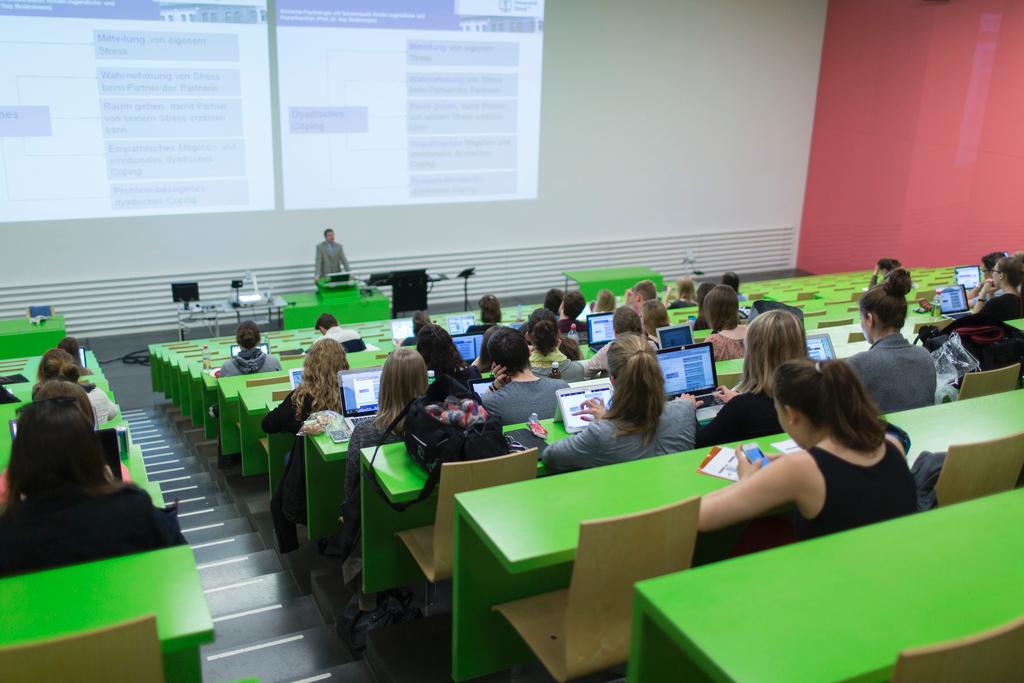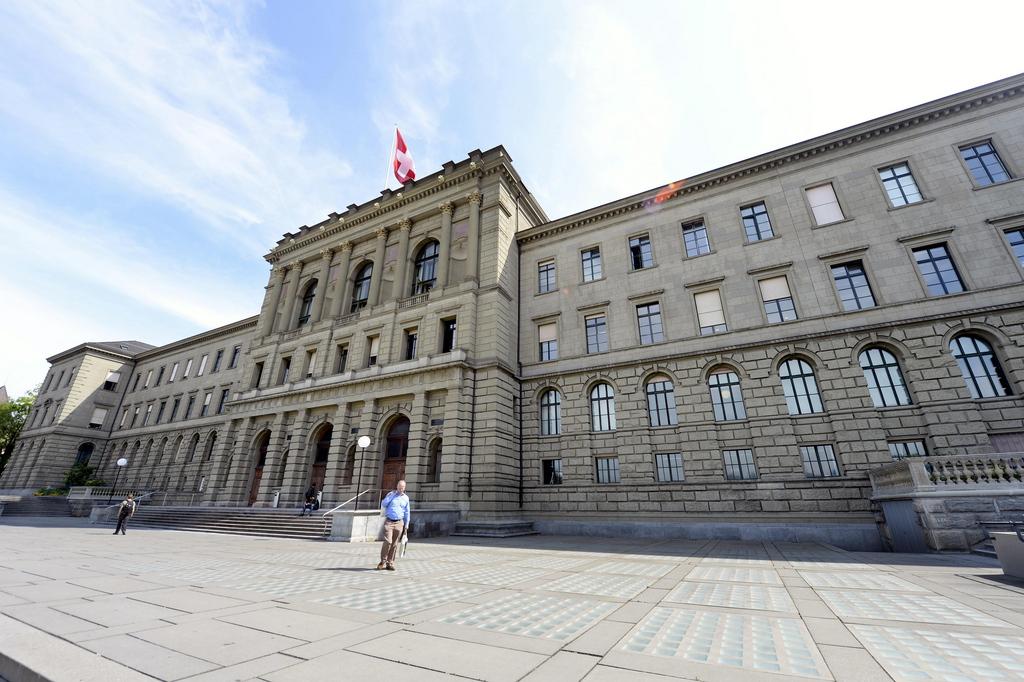‘Outward looking’ universities boost Swiss ranking

Switzerland’s higher education system has been ranked 2nd in the Universitas 21 2015 global ratings. One aspect where it stood out: international outlook. However this is the area under threat after an anti-immigration vote last year.
In its report, Universitas 21 (U21)External link, a group of research universities, placed Switzerland second out of 50 countries – ahead of such nations as the United Kingdom (ranked eighth). The United States topped the list, according to the data released on May 21.
The research differs from more conventional university ratings such as those from Times Higher Education (THE) and Shanghai External link– in which Swiss universities typically make the top 20 or 40 – in that it considers the higher education system as a whole.
“While Switzerland’s rank has improved from sixth to second partly as result of more weight given to the financial autonomy of universities, the new data show an improvement across the board in all areas,” said U21 project leader Ross Williams, who is based at the University of Melbourne, Australia.
“The secret to Swiss success seems to be that its universities are very outward looking: they have strong links with industry and business and with other international researchers.”
Room for improvement was to be found in environment, for example, Switzerland did poorly in male to female staff ratio.
Swiss reaction
Corina Wirth, scientific advisor at the State Secretariat for Education, Research and Innovation (SERI)External link, welcomed the U21 results, pointing out that in terms of connectivity, Swiss higher education policy fostered innovation and collaboration. But she also had some reservations.
“We are pleased as it shows the high level of our education system but we shouldn’t overvalue the ranking” she told swissinfo.ch. “The criteria were large, it covers quite a lot of the higher education system, however it doesn’t show everything.”
Resources was weighted 40% for example, and the others 20%. “Maybe if you change the criteria Switzerland appears at the top. So it all depends on the choice of criteria,” she said.
Her concerns come at a time of debate over university rankings in particular. While some have welcomed them as providing useful indicators, others have criticised them over their methodology or feel that universities have become too preoccupied with them.
Universitas 21 believes its rankings have a place. “It offers a broader view than what traditional university rankings provide,” said Gaétan de RassenfosseExternal link, who was also involved in the U21 research, and now holds the Chair of Innovation and Intellectual Property Policy at the Swiss Federal Institute of Technology Lausanne (EPFL).
“Although it is important to have a few flagship universities to train the elites (which the Times and Shanghai rankings try to capture), it is probably more important for the country as a whole to be able to ‘educate the masses’ well. We know very little about that and this is precisely what the U21 report is shedding light on.”
“Useful” rankings
Antonio LoprienoExternal link, rector of the University of Basel, and board member of the association swissuniversitiesExternal link, which represents higher education in Switzerland, said it was important to distinguish that most European countries did not have Switzerland’s dual system of educational and vocational training. For them, higher education is a university education.
Nevertheless, the rankings were useful because the whole spectrum of higher education is considered: so for the top-ranked US, this encompassed both Harvard and “a community college in Kansas, with all due respect for the community college in Kansas”.
Even in the UK there is an enormous qualitative difference between institutions. “You do not find this spectrum of variety within Switzerland, where the 12 institutions of higher education at university level, from the Federal Technology Institute ETH Zurich to the cantonal universities, have to a certain extent a comparable level of quality,” he told swissinfo.ch.
As for links with business and international research, this good score comes at a time when European ministers are trying to boost universities’ links to the productive world.
“So we are, within the spectrum of what at the continental strategic level seems to be the way institutions should go,” he commented.
Anti-immigration vote
But he sees a problem for international links due to the fallout of the Swiss vote in February 2014 to limit immigration.
This resulted in the European Union freezing the Swiss out of key Europe-wide educational schemes, such as Horizon 2020, shortly afterwards. In a small thawing of relations, Switzerland has now been allowed partial participation in Horizon 2020 until the end of 2016, by which all sides are hoping a solution will be found.
“The exclusion of our institutions from these very competitive EU grants would have tremendous impact on the image of the country as a place of science as a whole, so that is very much a matter of concern for us,” said Loprieno.
de Rassenfosse says it’s too early to assess how Switzerland’s international links will be impacted by the vote outcome. But he too sees problems in terms of image and financing.
“Generally speaking, connectivity is of high importance to small economies. In fact, the top ten of that rating is filled with small, open economies such as Austria, Singapore and New Zealand. The reason is that these countries crucially need input [of ideas, students] from the rest of the world,” he said.
Higher education landscape
Switzerland’s higher education sector is made up of federal institutes of technology and cantonal universities, universities of applied sciences and universities of teacher education. It follows the tiered study model of Bachelor’s and Master’s degrees. The cantonal universities and institutes of technology also award PhDs.
The main task of the universities – the ten cantonal institutions and the two federal institutes in Zurich and Lausanne – is to carry out basic research and teaching. In 2013/2014, over 140,000 people were studying at these twelve institutions, with around 40% foreign nationals.
The universities of applied sciences, of which there are 7 public and 1 private, place a greater emphasis on practically oriented studies and on applied research and development. In 2013/2014 around 70,000 students were enrolled: with just under 15% foreign nationals.
There are more than a dozen teacher training institutions. In 2013/14, there were around 12,000 students enrolled, over 70% of whom were women.

In compliance with the JTI standards
More: SWI swissinfo.ch certified by the Journalism Trust Initiative



You can find an overview of ongoing debates with our journalists here . Please join us!
If you want to start a conversation about a topic raised in this article or want to report factual errors, email us at english@swissinfo.ch.